Americans have turned against a confrontational approach to stopping terrorism, but 12 years after 9/11 many still think the country has not yet recovered.
Twelve years after the September 11 attacks on the World Trade Center, only a third of Americans think the country has recovered. And in the latest Economist/YouGov Poll, the public has turned away decidedly from confrontation with those who promote terrorism as the better means of preventing future attacks.
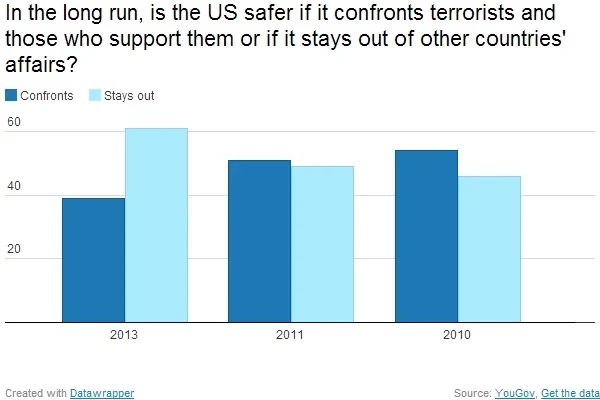
Three years ago, Americans were evenly divided on whether confrontation or more isolationist behavior was the right way to keep the country safe from terrorist attacks. Now there is a clear majority wanting the U.S. to “stay out” of other countries’ affairs.
In 2010, Democrats had long supported U.S. withdrawal from Iraq and Afghanistan (Barack Obama’s 2008 nomination was due in part to his opposition to the U.S.-led invasion of Iraq). Nearly two in three Democrats then believed non-involvement was the safer approach. Their opinion has changed little since then. But Republican support for engagement, perhaps affected by their current opposition to military intervention in Syria, has dropped 21 points in three years. In 2010, 76% of Republicans felt the U.S. would be safer if it confronted countries and groups that promote terrorism.
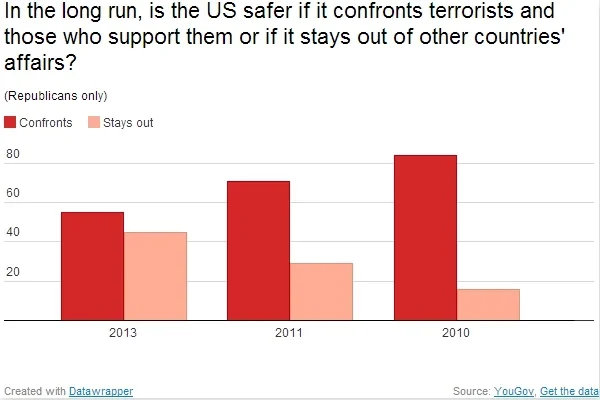
Presidential policies and national safety
A decreasing percentage thinks the U.S. is less safe than it was in 2001 (18% say that now, compared with 28% three years ago). Four in ten say the U.S. is safer today than in 2001. But there remains fear of another attack: 15% say another attack in the U.S. is very likely in the next 12 months, and another 37% say it is somewhat likely. Those distributions have remained fairly constant over the last few years.
The President’s ratings on terrorism have slipped from the high marks he received after the killing of Osama bin Laden in 2011. Now, 40% approve of his handling of terror, while more, 47%, disapprove.
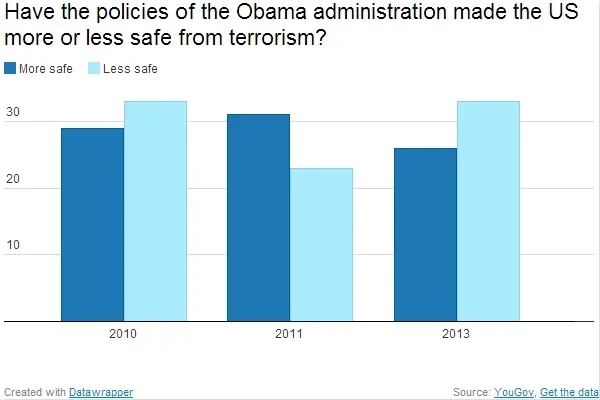
And this year President Obama narrowly trails former President George W. Bush when it comes to whether or not each President made the country safer from terrorism. More say Bush made the country safer from terrorism than say that about Obama; more say Obama made the U.S. less safe than think that about Bush. Two years ago, just four months after the death of bin Laden, Bush was more likely than Obama to be seen as making the country more and less safe.
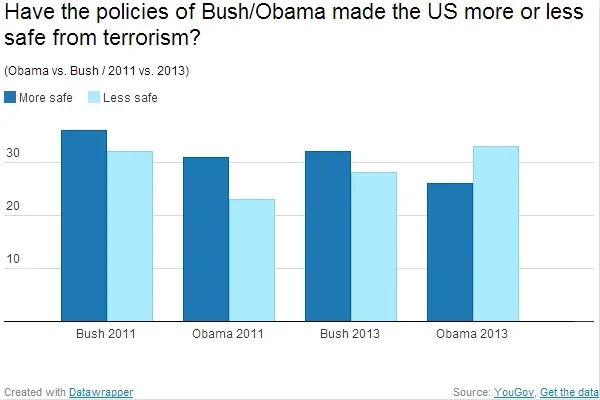
Counting the cost
A majority are satisfied that the country has put the right amount of focus on 9/11. In the Northeast, the site of the attacks, even more say there has been the right amount of focus on the events. Just 6% in the Northeast (compared with 15% nationally) say there has too much focus on the memory of what happened twelve years ago.
More now than before think the country has recovered from that attack a dozen years ago. But one in four still say that the country will never recover. That figure rises to one in three among those 65 and older.
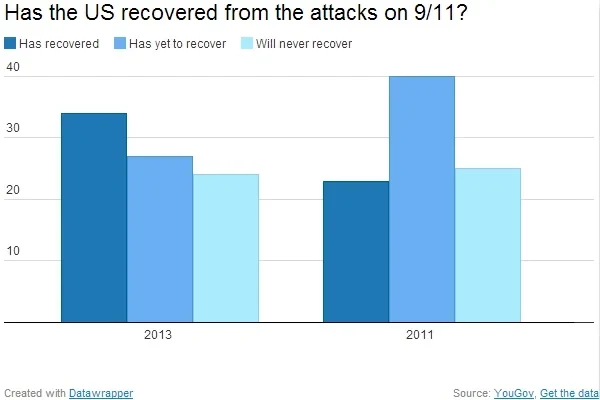
Recent revelations about government surveillance within the country, as well as the long-term dissatisfaction with the wars in Iraq and Afghanistan, may have soured some on the methods the U.S. has employed to combat terrorism. Nearly one in three say additional security at airports and public events has gone too far and restricts civil liberties (younger Americans believe this even more; nearly half of independents think this). Less than half as many think security measures have not gone far enough.
Only 38% think the military operations and surveillance since 9/11 have been worth the cost. While this percentage is down from 2011, the results are less negative than the answers Americans gave to the same question earlier this year, right after they heard former NSA analyst Edward Snowden’s revelations about government internet and telephone surveillance operations.
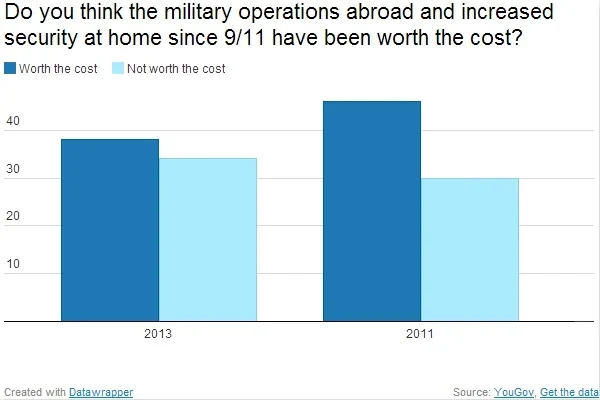
Seeing the value of these operations increases with age. And Republicans, who have continued to be more supportive than Democrats of U.S. actions in Iraq and Afghanistan, are more likely than Democrats to think government security actions since 9/11 have been worth the cost. 55% of Republicans say they have been, compared with 41% of Democrats, and just 26% of independents.
Americans still disapprove of the NSA data collection activity by 51% to 38%. A majority of those over 65 approve, as do 51% of Democrats.
Full results can be found here.
Economist/YouGov poll archives can be found here.
Image: Getty.








